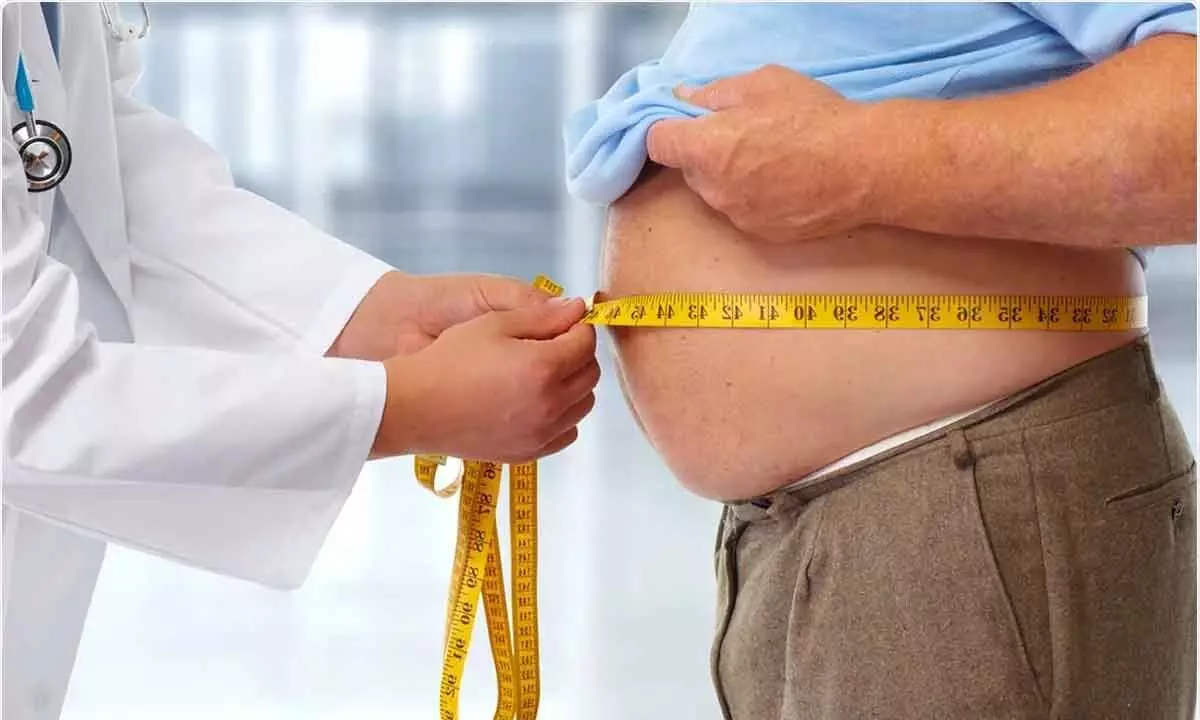Obese people need more booster shots to stay protected from Covid
People with severe obesity (a body mass index greater than 40 kg/m2) had a 76% higher risk of severe Covid-19 outcomes, compared to those with a normal BMI: Study
image for illustrative purpose

The protection offered by Covid-19 vaccination declines more rapidly in people with severe obesity than in those with normal weight, scientists have found.
People with obesity were more likely to be hospitalised, require ventilators and to die from Covid, but vaccines proved effective for them. But, the study, led by a team from the Universities of Cambridge and Edinburgh, suggested that people with obesity are likely to need more frequent booster doses to maintain their immunity.
However, even the booster antibodies likely decrease in 15 weeks time, revealed the study, published in the journal Nature Medicine. A team from the University of Edinburgh looked at real-time data tracking the health of 3.5 million people. They looked at hospitalisation and mortality from Covid in adults who received two doses of Covid-19 vaccine (either Pfizer-BioNTech or AstraZeneca).
They found that people with severe obesity (a body mass index greater than 40 kg/m2) had a 76 per cent higher risk of severe Covid-19 outcomes, compared to those with a normal BMI. A modest increase in risk was also seen in people with obesity (30-39.9kg/m2), and those who were underweight.
Break-through infections after the second vaccine dose also led to hospitalisation and death sooner (from 10 weeks) among people with severe obesity, and among people with obesity (after 15 weeks), than among individuals with normal weight (after 20 weeks).
The team from Cambridge studied people with severe obesity, and compared the number and function of immune cells in their blood to those of people of normal weight. The researchers found that six months after a second vaccine dose, people with severe obesity had similar levels of antibodies to the Covid virus as those with a normal weight.
But the ability of those antibodies to work efficiently to fight against the virus (known as aneutralisation capacity') was reduced in people with obesity. About 55 per cent of individuals with severe obesity were found to have unquantifiable or undetectable 'neutralising capacity' compared to 12 per cent of people with normal BMI.
"This study further emphasises that obesity alters the vaccine response and also impacts on the risk of infection," said Dr Agatha van der Klaauw from the Wellcome-MRC Institute of Metabolic Science and first author of the paper. "We urgently need to understand how to restore immune function and minimise these health risks."
The antibodies in people with severe obesity were less effective potentially because the antibodies were not able to bind to the virus with the same strength. When given a third (booster) dose of a Covid vaccine, the ability of the antibodies to neutralise the virus was restored in both the normal weight and severely obese groups. But the researchers found that immunity again declined more rapidly in people with severe obesity, putting them at greater risk of infection with time.

